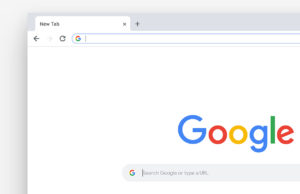Chromebooks Land First Batch Of Android Apps
As promised at Google I/O earlier this year, the first batch of Android apps have begun to migrate to Chrome OS.
Google announced on Thursday that it has partnered with four high-profile app makers to get their Android apps to run on Chrome OS-powered Chromebooks. These are available today and include language-learning aid Duolingo, productivity app Evernote, children’s literacy system Sight Words and video-looping Vine.
When Sundar Pichai, Google’s senior vice president in charge of Chrome, Android, and apps, announced the migration plan at Google I/O in June, he said that Google wanted to break down barriers between the two operating systems.
“Wouldn’t it be nice to get some of your favorite applications on your Chromebook? We want this to be intuitive for users. For developers, we want this to work with as little modification as possible,” he said.
Pichai added that an Android app on Chrome can use “some of the underlying device APIs, like the Camera API,” which allows for core functions, like Vine’s ability to shoot video, to carry over.
The Android apps are able to run on Chrome OS by using the App Runtime for Chrome, first announced at Google I/O in June. Still in beta, Google is keeping the runtime close to its chest and only allowing selected partners to run their apps on Chrome OS so far.
The partnerships will focus on adding “your favorite apps” to reduce problems and create “a more seamless experience” when switching between Chrome and Android, wrote Google software engineer Ken Mixter and product manager Josh Woodward in a blog post today.
The Google I/O demonstration featured Flipboard along with Evernote and Vine, but Flipboard wasn’t in this first batch of releases.
Google told Ars Technica in a statement that the runtime runs in Native Client.
“In this way the ARC (Android Runtime for Chrome) apps run in the same environment as other apps you can download from the Chrome Web Store, even though they are written on top of standard Android APIs. The developers do not need to port or modify their code, though they often choose to improve it to work well with the Chromebook form factor (keyboard, touchpad, optional touchscreen, etc).”
It’s not clear if the acronym should’ve been written out as App Runtime, instead of Android Runtime, although Mixter and Woodward refer to it as App Runtime. A request for comment was not immediately returned by Google.
Google has been investing a lot of time over the past year in building systems that allow Web apps originally designed to run in Chrome to also function on Android, and vice versa. If both projects are successful, it won’t just cut down on the complications when switching between Google’s two operating systems for users, but for developers as well.













 © 2024
© 2024
0 comments